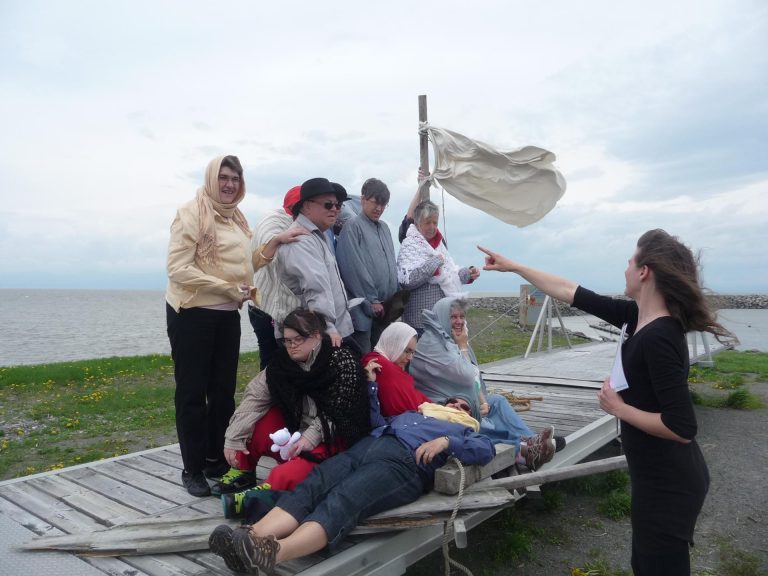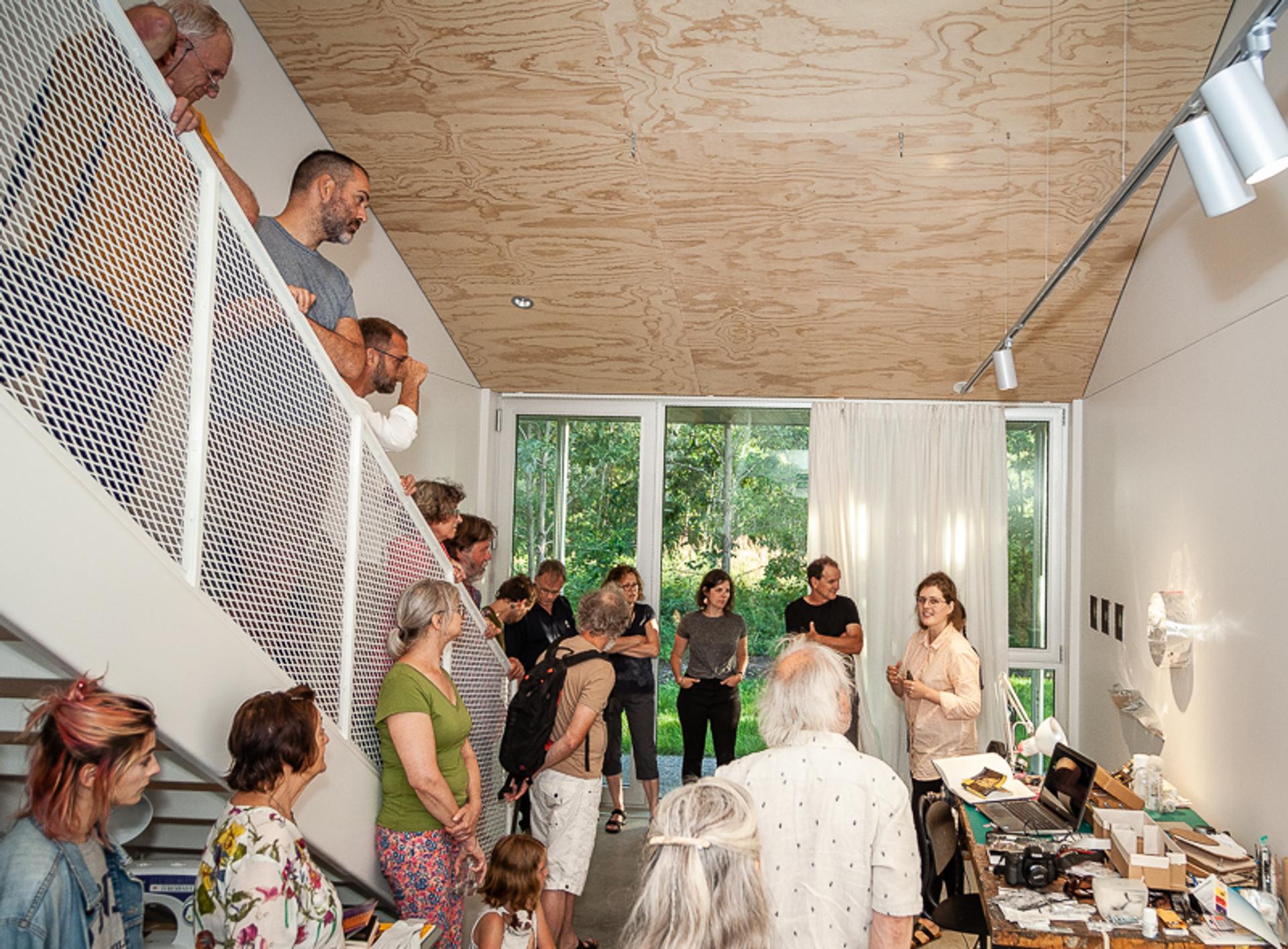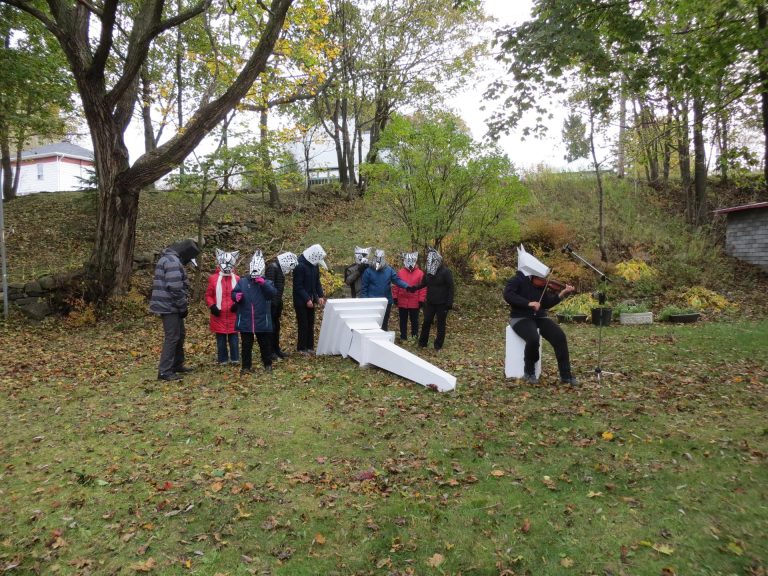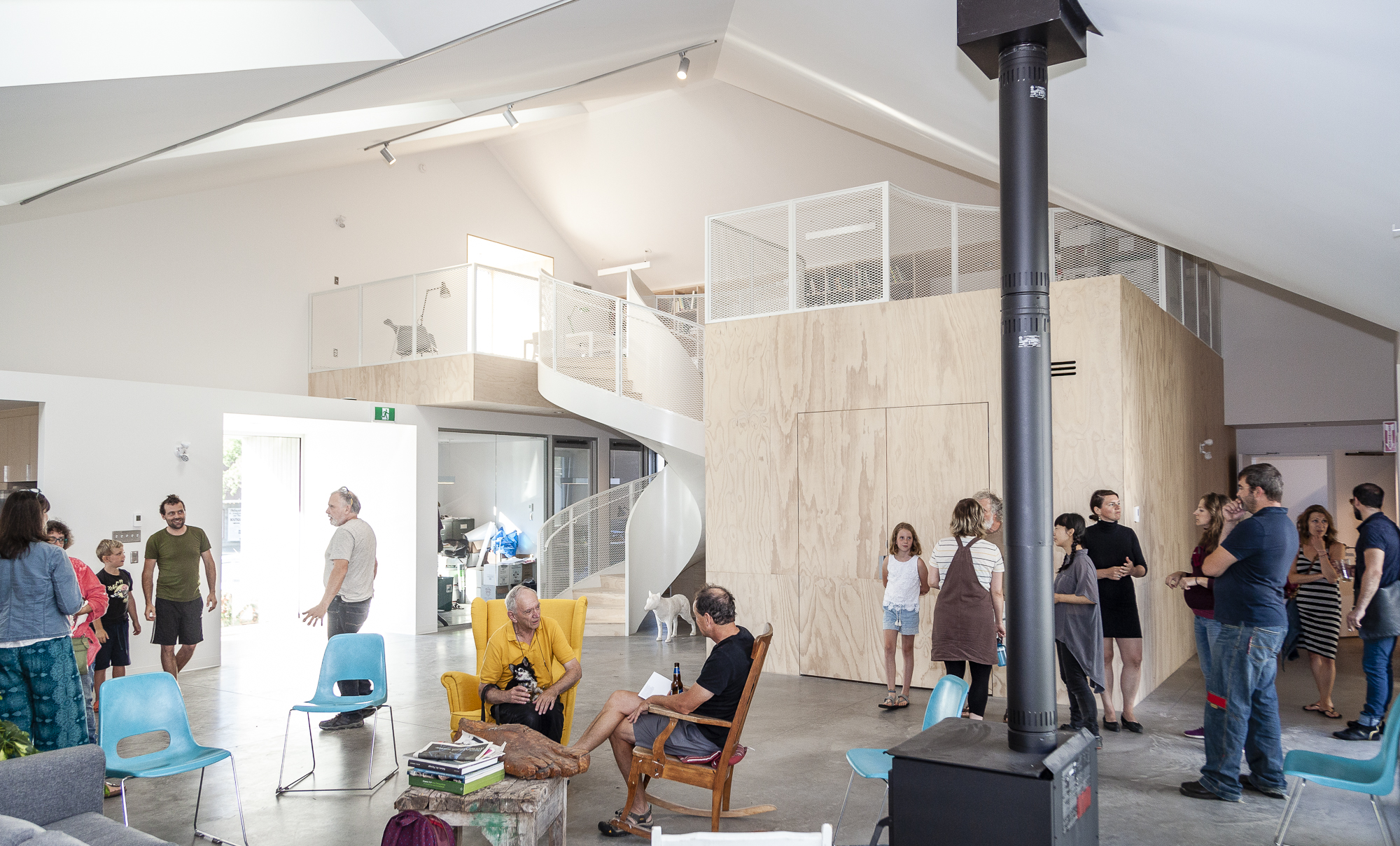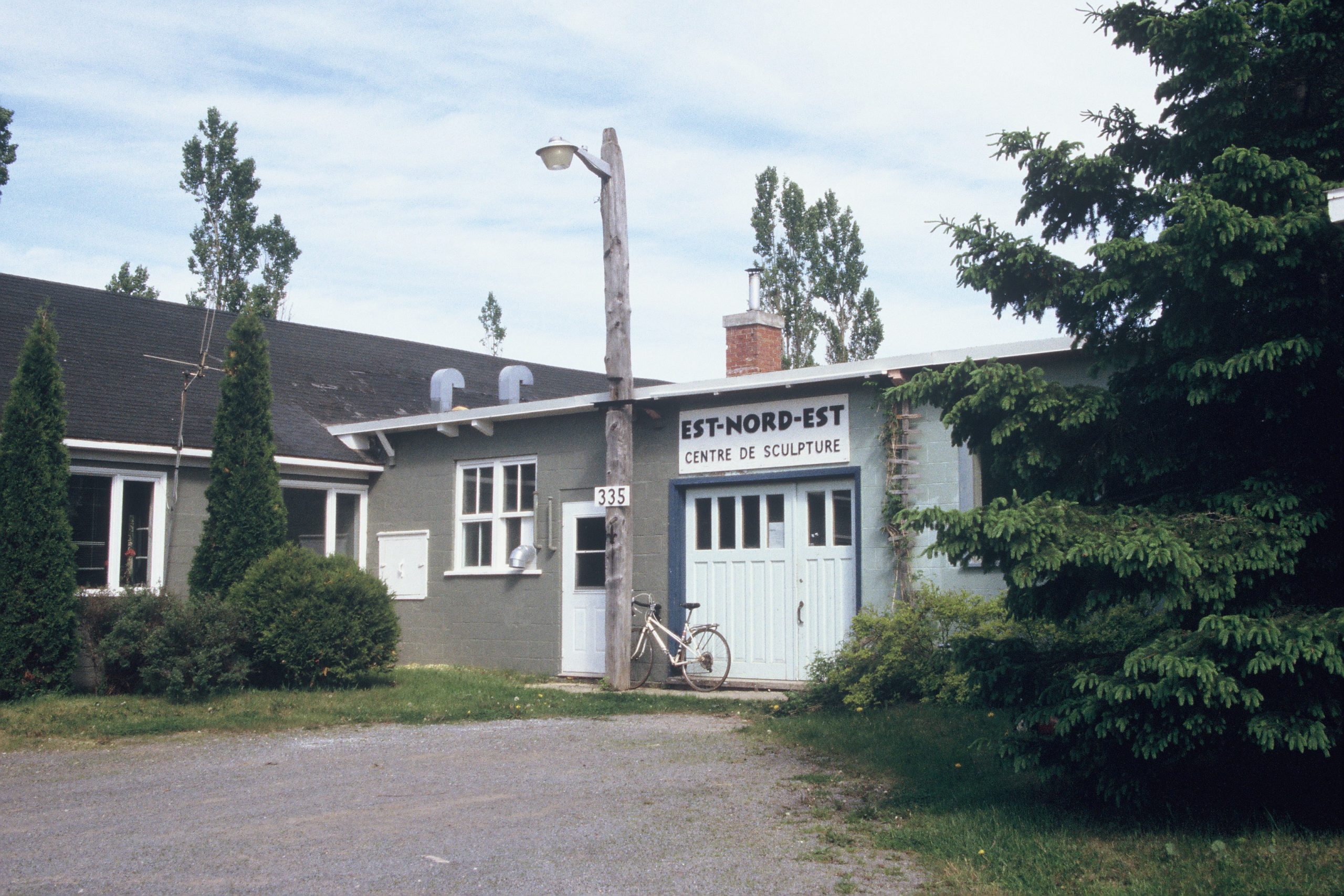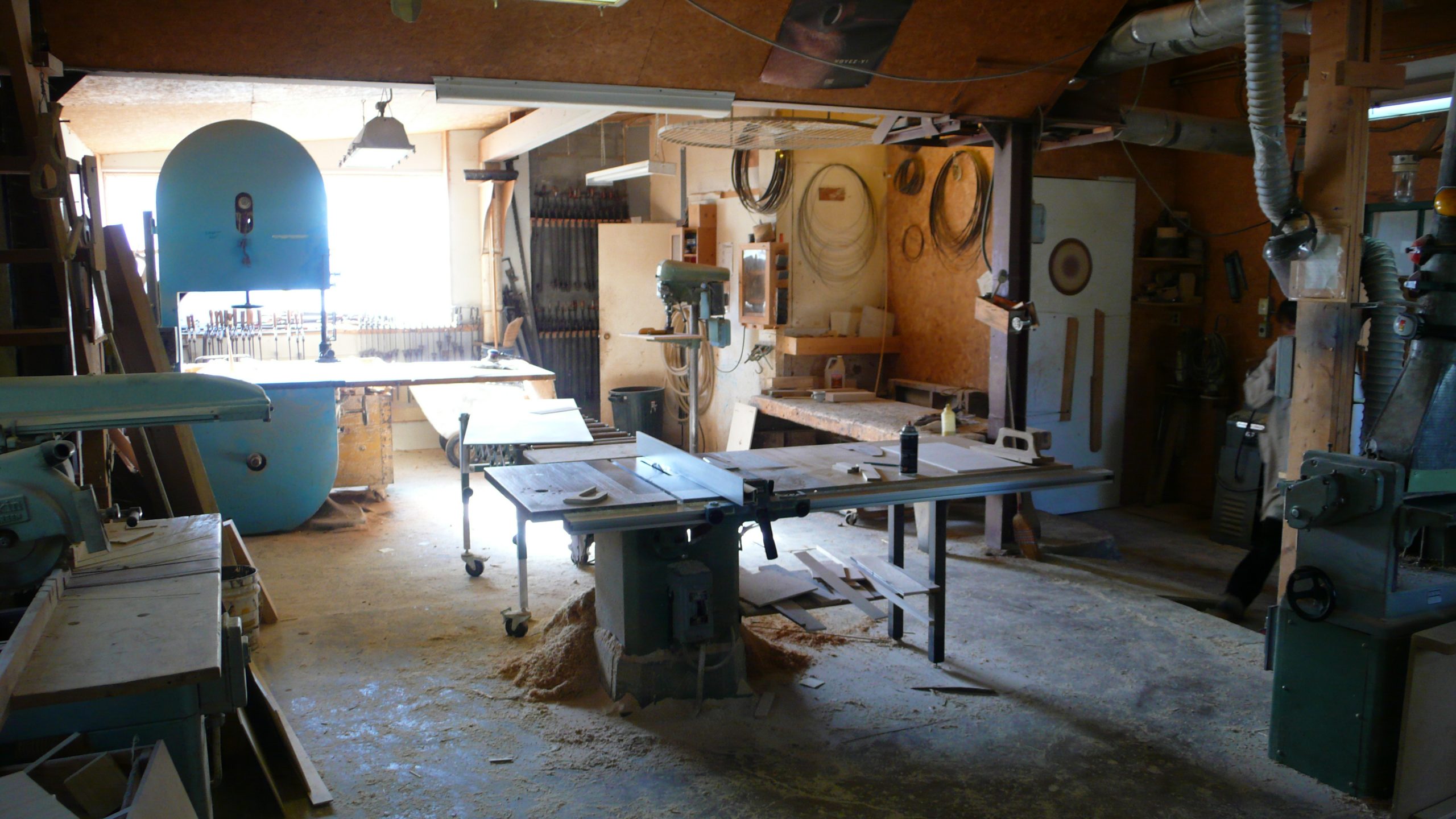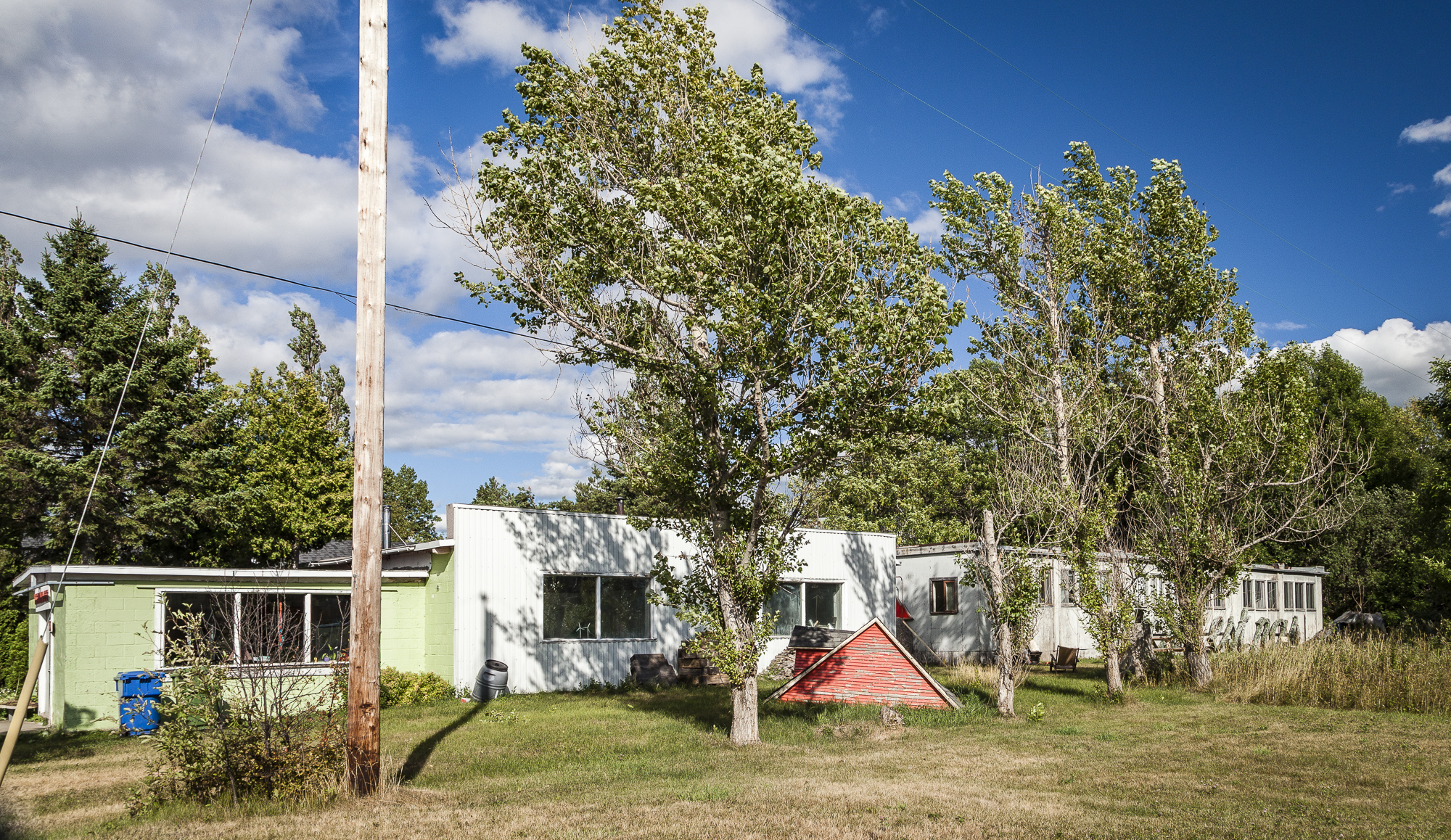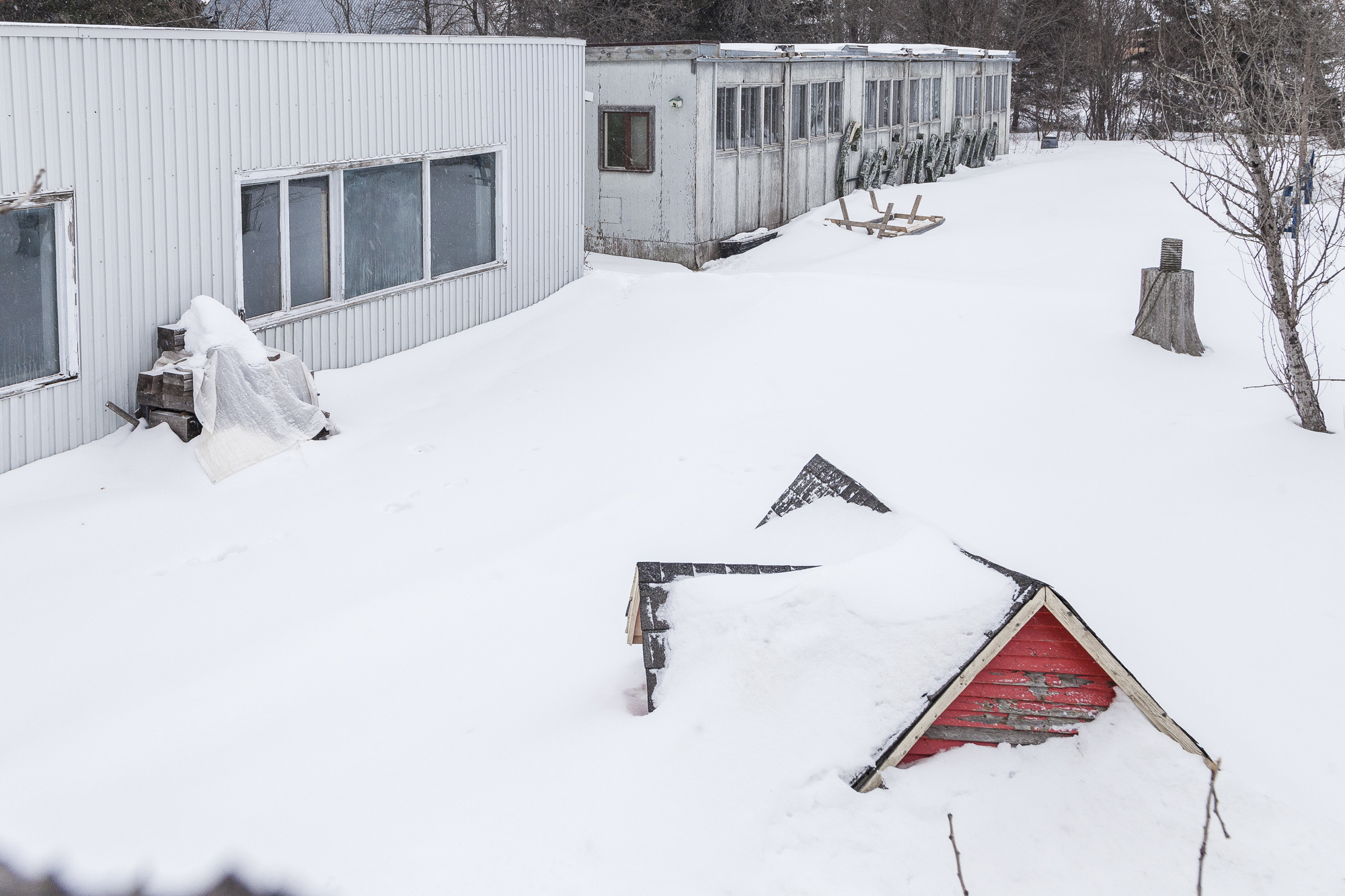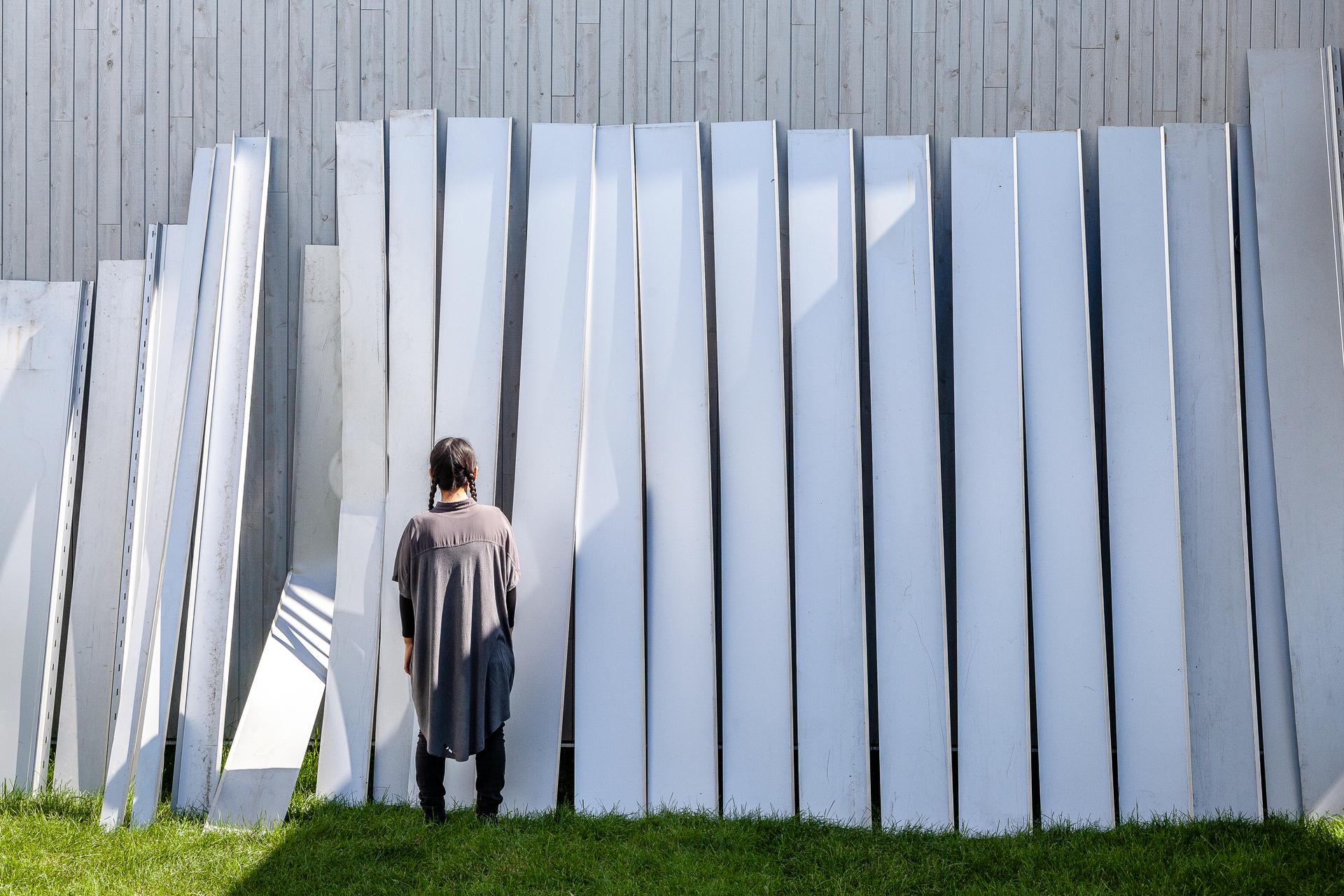
Founded in 1992 and situated in Saint-Jean-Port-Joli, Québec, near the St. Lawrence River, Est-Nord-Est (ENE) is an artist-run centre for research in contemporary art, and a major actor in the field outside of large cities. Its main objective is to offer an international community of artists and authors space and time for experimentation and privileged access to resources and to a variety of local expertise. The centre promotes the importance of the creative process in contemporary art practices.
The centre invites residents to freely explore new creative territories without a predetermined production goal or an imperative for dissemination. Its residency offer responds to a manifest need expressed by artists and authors, both established and emerging, in the broad field of the visual arts in Québec, Canada, and other countries, for whom benefiting from a context completely devoted to exploration is essential to the professional development of their practice.
Mission
To support an international community of artists and authors in contemporary art by offering space and time for research and experimentation, as well as privileged access to local resources and expertise.
Mandate
To create a context that encourages research and experimentation through the complementarity of the team and the specificity of a geographically, culturally, and architecturally unique setting.
To highlight the creative process and critical reflection on art as it is being made in the ecosystem of Canadian contemporary art, while assuring that the practices of residents are placed in interaction and are seen as processes.
To contribute to the sharing of knowledge, the transfer of expertise, and professional networking.
Activities
ENE’s program is constructed to nurture a fertile cohabitation between artists and authors. The centre encourages the publication of texts and images as a means of making practices accessible. It makes available a documentation centre containing books and periodicals on issues related to contemporary art where residents may find resources. It also organizes public activities to introduce the residents to the community and offers local organizations creative encounters hosted by the artists and authors.
History
In the 1940s, the town of Saint-Jean-Port-Joli was already known for its sculpture school and for a large and evolving community of artisans. In the early 1960s, visual artists were drawn to the local sculpture scene, creating a unique synergy between applied arts and contemporary art practices. When, in 1986, the sculpture school closed to become affiliated with an institution of higher education, artists Roberto Pellegrinuzzi, Michel Saulnier, and Pierre Bourgault formed a group and took over its premises, founding Les Studios d’été to propose a new opportunity: offering artists from the city a retreat in a village in which a rural lifestyle was blended with a living tradition of carved-wood sculpting.
In 1992, Les Studios d’été became Est-Nord-Est, an artists’ centre that opened the way to three decades of research residencies with the aim of experimentation and exchanges in the field of contemporary art. Between 1992 and 2016, many major artists and authors attended residency-events or regular residencies. After an exercise in reflection during which it was decided to refocus on the centre’s primary mission, in 2016 ENE began a transition that led it to rethink its spaces in order to reaffirm the specificity of its mandate of hosting and support for research. On July 8, 2019, ENE welcomed artists and authors to premises that had been redesigned to encourage exchanges, technical guidance, and artistic reflection.
Over thirty years, ENE has established the dynamic of hospitality and effervescence that is its signature. Thanks to this dynamic, the presence of artists and authors from Québec, Canada, and other countries has created – and is still creating – opportunities for artistic exchange that stimulate the development of art practices and the potential for collaborations.
ENE is member of the Regroupement des centres d’artistes autogérés du Québec.
Discover
Newsletter
Keep up to date with the latest news!
